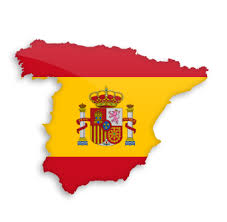 Spain is a country with a strong food and wine history but often underestimated; at a glance you can get a feel for how important Spain is, to Europe particularly, by seeing some of today’s main data in a nutshell.
Spain is a country with a strong food and wine history but often underestimated; at a glance you can get a feel for how important Spain is, to Europe particularly, by seeing some of today’s main data in a nutshell.
Just over 68 million visitors (2015) come to Spain annually, thus being the third world power in the tourist sector. The headquarters of the World Tourism Organisation (UNWTO) are located in Madrid.
In 2015, The Foundation for Environmental Education (FEE) based in Denmark, has qualified 578 Spanish beaches and 101 marinas as Blue Flag quality, the highest number in the European Union. Spain was one of the first European countries to introduce the concept of National Parks in 1918 (Montaña de Covadonga in Asturias and Ordesa in Aragón were the first ones). Today, there are 15 National Parks, in addition to a wide variety of protected areas in all of the Spanish Autonomous Communities.
One interesting feature for a tourist in Spain is Paradores. This state owned chain of hotels, mostly in refurbished castles, convents and other historical buildings offers a unique opportunity to spend an unforgettable stay in monuments full of history. The first Parador was opened in 1928 in the mountain range of Gredos. Enjoy Moorish Spain at the 15th century convent, within the Alhambra palace or spend a weekend within the Teide National Park on the Canary Islands. Recently the Paradores have also renewed their menus, giving special importance to local gastronomy.
Wine Facts:
Spain is indisputably the country in which vineyards occupy the greatest land area (1,1 million ha / 2.9 million acres: 14,8% of the world’s total) and is the second largest exporter of wine worldwide, exporting 14,4 million hectolitres of the 35 million it produces. Spain is the third largest producer of wine worldwide.
The value of Spanish wine exports is calculated to be 1.833 million Euros, 74% of which are wines under Denominations of Origin (DO). United Kingdom is the principal market for our wine exports, importing 17% of the total, followed by Germany, the United States, France, Switzerland, Italy and The Netherlands.
Spain has 69 Wine Denominations of Origin, which cover a surface area of 641,784 hectares, and group a total of 165,943 wine growers and 6,355 wineries.
Food Facts:
The Spanish agricultural and food industry is sixth in the European Union, with a production valued at 91,903 million Euros, of which 24.5% is exported (FIAB - 2013).
In 2014, according to the European Commission, Spain has registered 95 products under Protected Designations of Origin (PDO), 79 under Protected Geographic Indications (PGI) and 4 products under Traditional Speciality Guaranteed (TSG).
Worldwide (FAO Stats), Spain is:
The number one producer and exporter of olive oil and extra virgin olive oil.
The number one producer and exporter of table olives.
Second in production of almonds (with shell).
Second in production of tangerines, mandarins and clementines.
Second in production and exportation of preserved fish and seafood.
Second in production and exportation of mussels.
Third in production of artichokes.
Fourth in production of lettuce and chicory.
Fourth in production of strawberries.
Fourth in production of pork.
Fifth in production of cherries.
Fifth in production of grapes.
Fifth in production of peaches and nectarines.
Within the European Union, Spain is:
The number one producer and number three exporter of fruit.
The number one producer of farmed fish.
The number one producer of preserved fruit, and the third largest of preserved vegetables.
The number one producer of honey.
The number one producer and exporter of pomegranates.
Second in the production of pigs, sheep and goats.
Third largest producer of meat.
Third in production of walnuts.
Fourth in production of processed meat products.
Fourth in egg production.
Fourth largest producer of bottled water.
Fifth largest producer of vinegar.
With nearly 1,756,548 ha / 4,340,524 acres of land and 30,462 arable farms dedicated to this type of agriculture (2012), Spain is the largest producer of ecologically grown foods in the European Union and the sixth in the world.